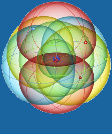The Working Group schedule, room location, remote connection information, and program links are below. Session conveners and points of contact are given below the schedule.
A one-page overview of the program is here.
Session 1: 8:05 - 10:05 (2 hours)
| Working Group Session | In-person and Remote Connection Information | Program |
| Nuclear Structure & Reaction Theory, part I |
APS Conference Center (Bldg. 402), E0100 |
|
| Nuclear Astrophysics Modeling, part I |
APS Conference Center (Bldg. 401), A1100 |
|
| Facilities, Detectors & Upgrades, part I |
APS Conference Center (Bldg. 402), Auditorium |
|
| Workforce & Education, part I |
APS Conference Center (Bldg. 402), E1100 |
Talks (TBA) |
| Isotopes |
Physics Division (Bldg. 203), Auditorium (map) |
Talks (TBA) |
| Nuclear Data, part I |
APS Conference Center (Bldg. 402), E1200 |
Session 2: 10:30 - 12:30 (2 hours)
| Working Group Session | In-person and Remote Connection Information | Program |
| Nuclear Structure & Reaction Theory, part II |
APS Conference Center (Bldg. 402), E0100 |
|
| Nuclear Astrophysics Modeling, part II |
APS Conference Center (Bldg. 401), A1100 |
|
| Facilities, Detectors & Upgrades, part II |
APS Conference Center (Bldg. 402), Auditorium |
|
| Diversity, Equity, Inclusion, & Belonging, part I |
APS Conference Center (Bldg. 402), E1100 |
|
| Fundamental Symmetries |
Physics Division (Bldg. 203), Auditorium (map) |
|
| Nuclear Data, part II |
APS Conference Center (Bldg. 402), E1200 |
Session 3: 13:30 - 15:00 (1.5 hours)
| Working Group Session | In-person and Remote Connection Information | Program |
| Computing, part 1 - HPC |
APS Conference Center (Bldg. 401), A1100 |
|
| Connecting Nuclei to the Cosmos, part I |
APS Conference Center (Bldg. 402), E0100 |
|
| Nuclear structure & Reactions Experiments, part I |
APS Conference Center (Bldg. 402), Auditorium |
|
| Workforce & Education, part II |
APS Conference Center (Bldg. 402), E1100 |
Talks (TBA) |
| Broader Applications & Accelerator Science, part I |
APS Conference Center (Bldg. 402), E1200 |
Session 4: 15:20 - 17:20 (2 hours)
| Working Group Session | In-person and Remote Connection Information | Program |
| Computing, part II – Quantum, ML/AI |
APS Conference Center (Bldg. 401), A1100 |
|
| Connecting Nuclei to the Cosmos, part II |
APS Conference Center (Bldg. 402), E0100 |
|
| Nuclear structure & Reactions Experiments, part II |
APS Conference Center (Bldg. 402), Auditorium |
|
| Diversity, Equity, Inclusion, & Belonging, part II |
APS Conference Center (Bldg. 402), E1100 |
|
| Broader Applications & Accelerator Science, part II |
APS Conference Center (Bldg. 402), E1200 |
Session 5 (joint/overrun sessions): 17:30 - 18:30 (1 hour)
| Working Group Session | In-person and Remote Connection Information | Program |
| Joint Theory and Computing session |
APS Conference Center (Bldg. 402), (session not held) |
|
| Joint Astro session |
APS Conference Center (Bldg. 402), (session not held) |
|
| Nuclear Structure and Reactions Experiments |
APS Conference Center (Bldg. 401), A1100 |
|
| Joint Workforce, Education & DEIB |
APS Conference Center (Bldg. 402), Auditorium |
Open mic |
Session conveners
Points of contact are in boldface. Please let the groups know of any contributions you would like to make. The working-group organizers will ensure that the community's aspirations for the given topic are reflected in the Town Meeting Whitepaper.
Core
Nuclear Structure and Reaction Theory: Thomas Papenbrock, Daniel Phillips, Maria Piarulli, Gregory Potel, Nicolas Schunck, Ingo Tews, Alexander Volya
Nuclear Structure and Reactions Experiments: Mike Carpenter, Robert Charity, Heather Crawford, Kate Jones, Sean Liddick, Andy Rogers, Nick Scielzo
Nuclear Astrophysics – Modeling/Theory: Jutta Escher, Chris Fryer, Raph Hix, Amy Lovell, Gail McLaughlin, David Radice, Sanjay Reddy
Connecting Nuclei to the Cosmos: Melina Avila, Dan Bardayan, Kelly Chipps, Aaron Couture, Catherine Deibel, Chuck Horowitz, Richard Longland, Alan McIntosh, Hendrik Schatz, Frank Strieder
- Form for Working Group contributions can be found here: https://forms.gle/tNRfJ3u5JMT3j4wR7. We welcome contributions to the white paper before, during, and shortly after the meeting.
Facilities, Instruments, and Upgrades: Georg Bollen, Manoel Couder, Paul Fallon, Robert Janssens, Steve Pain, Guy Savard, Ingo Wiedenhoever
Cross Cutting
Education: Mark Caprio, Paul Cottle, Ben Kay, Shelly Lesher, Lauren McIntosh, Andrew Ratkiewicz, Remco Zegers
Diversity, Equity, Inclusion, and Belonging: Daniel (Akaa) Ayangeakaa, Paul Gueye, Stephanie Lyons, Warren Rogers, Alejandro Sonzogni, Vandana Tripathi
Computing (HPC, Quantum, AI/ML): Gaute Hagen, Calvin Johnson, Michelle Kuchera, Dean Lee, Pieter Maris, Kenneth Roche, Kyle Wendt, Michael Zingale.
Accelerator Science, Applications and Broader Impacts: Mike Kelly, Graham Peaslee, Brad Sherrill
Nuclear Data: Christian Illiadis, John Kelley, Filip Kondev, Libby McCutchan, Matt Mumpower, Artemis Spyrou
Isotope Science: Ani Aprahamian, Jonathan Engle, Jerry Nolen, Greg Severin, Jennifer Shusterman, Etienne Vermeulen, Sherry Yennello
Intersecting
Intersections of low-energy nuclear physics and fundamental symmetries (includes quantum sensing): Max Brodeur, Vincenzo Cirigliano, Alejandro Garcia, Kyle Leach, Dan Melconian, Peter Mueller, Saori Pastore, Jaideep Singh, Ragnar Stroberg

